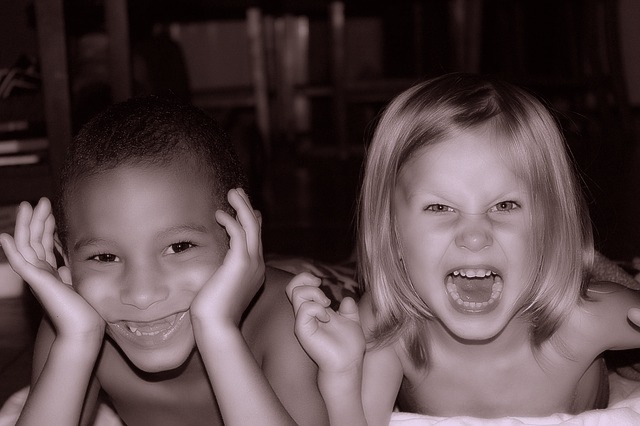
A few years ago, a dear friend of mine told me something that totally took me by surprise.
I was complaining about my hair. I wanted it to be thicker, brighter, and longer. My friend looked at me with compassion and said, “Dear, maybe if you start loving it, it will love you back?”
That was mind-blowing. Loving my hair? What did she mean by that?
Looking back on my life, I realized that I’ve had a dissonant relationship with my body for many years. I was obsessed with the size of my hips, and I was always focusing on things wanted to change about the way I looked.
Regarding dieting, I was an expert. I think I tried them all, and that was a big source of my general stress and frustration. In case you’ve ever considered trying out the “three-times-a-day cabbage soup“ diet, please don’t do that to yourself—ever.
So, where does this body obsession come from? I can’t recall having such concerns when I was small. I didn’t care if my hips were too big or my hair was too thin. I was happy and free. But much later, society took over. In the Eastern-European culture I grew up in, the concept of beauty was automatically associated with being slim. Women especially put a lot of focus on the battle against extra weight.
When we come to this world, we know nothing. In the universe of a child, there are no norms to follow and no rigid rules or regulations—there’s real freedom. Children are born free spirits. The way we think and behave as adults is shaped by our environment: family, school, religion, and political system. Let’s be honest about this—we are all brainwashed. Only our schools were different.
We often tend to view children as naive because of their lack of knowledge and experience. However, there are plenty of valuable lessons that small children can teach us. Here is what I’ve learned from them:
1. Children love themselves unconditionally.
Each time I see chubby babies in strollers, I am sure they don’t judge themselves as imperfect, less intelligent, or too fat. Instead, they are smiling at everyone, playing, and having fun. No masks, no pretending, and no people-pleasing so people will like them more—they simply love and approve of themselves as they are. They are authentic and true to themselves, with no apologies, and other people’s opinion or approval of them is neither required or needed.
“My inner child knows how perfect she is. I hold this child close to my heart and tell her how much I love her.” ~ Louise Hay
2. Children live in the now.
Children can be present and enjoy the only reality that is: the present moment. The more we grow up, the more we start living in the past or the future. We punish ourselves for previous mistakes, and we live with self-blame, guilt, and regret. We spend our precious time on worries and concerns that haven’t happened yet. Meanwhile, children enjoy the juicy gift called living, and they trust the flow of life.
“Yesterday is history; tomorrow is a mystery; today is a gift; that’s why we call it the present.” ~ Unknown
3. Children openly express their needs and their emotions.
Small children can often remind us of our true nature. In their world full of playfulness, creativity, and fun, things are much more straightforward and clear. Life, in fact, is quite simple; the more we grow up, the more we tend to complicate it. No matter how our life journey looks, there’s still a little child inside of each of us—a loving soul who wants the best for us and loves us unconditionally.
When babies are hungry, they make sure we know. If children are afraid, sad, or upset—they say so. When there’s something they want, they say so as well. In this open communication space, there’s no room for mind-reading or making assumptions. They don’t claim they know what other people feel or think. If there’s something unclear to them, they express their genuine curiosity and ask questions.
“Don’t make assumptions. Find the courage to ask questions and to express what you really want. Communicate with others as clearly as you can to avoid misunderstandings, sadness, and drama.” ~ Don Miguel Ruiz
4. Children don’t worry about what other people think.
I’ll be brutally honest with this one: There were quite a few situations in my life when I didn’t dare to ask questions, especially when there was something I didn’t know. The truth is that I didn’t want to look less intelligent (or stupid) in front of others. Especially at work, I didn’t feel comfortable enough to openly admit that I didn’t hold all the answers and still had to learn. I wanted people to perceive me as an expert, super smart, invincible, and strong. The reality was different, and every day was a new learning experience at the School of Life.
Children are curious. They ask questions without worrying about what others think of them. How do you do that? What does this mean? How does this work? Can you show me how to do this?
This is partially why children can learn to speak foreign languages more easily than adults. They don’t care about spelling or pronunciation rules. They just talk and give it a try.
“To know what you know and what you do not know, that is true knowledge.” ~ Confucius
5. Children are brave.
Fear is a learned practice. Children are not afraid of trying, failing, and getting up on their feet again. That’s how we get to learn how to walk! When they make the first step, they don’t call themselves names or punish themselves if they fall. They get up and give it another try. They are not afraid to step outside of their comfort zone or try out new experiences. They know that in life, sometimes we win, and sometimes we learn. We never lose.
“Our deepest fear is not that we are inadequate. Our deepest fear is that we are powerful beyond measure. It is our light, not our darkness that most frightens us. We ask ourselves, ‘Who am I to be brilliant, gorgeous, talented, fabulous?’ Actually, who are you not to be? You are a child of God. Your playing small does not serve the world. There is nothing enlightened about shrinking so that other people won’t feel insecure around you. We are all meant to shine, as children do.” ~ Marianne Williamson
~
Author: Sara Fabian
Image: Pixabay
Editor: Yoli Ramazzina
 Share on bsky
Share on bsky





Read 9 comments and reply